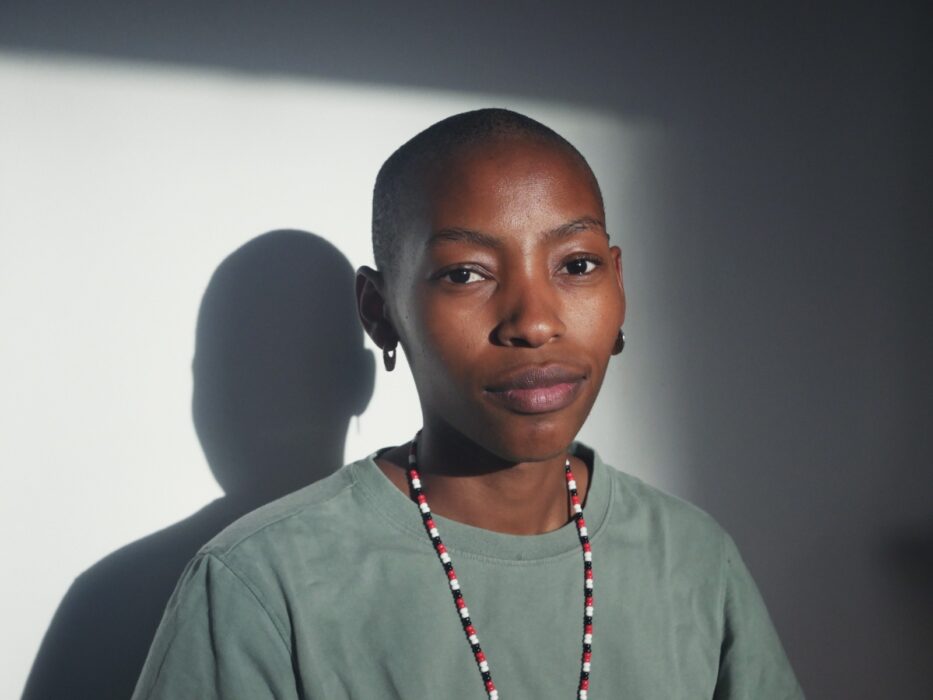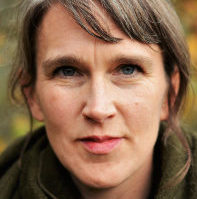
”Ett familjearkiv kan berätta något om ens historia och de tider som familjen har levt igenom.” Det säger den sydafrikanska kulturarbetaren Mmabatho Thobejane som i helgen håller en workshop om familjearkiv och ljud med Black Archives. Fempers nyheter har ställt tre frågor.
Vad är ditt familjearkiv? Vilka och vad ingår i det? Vilka ljud väcker minnen hos dig om din familjehistoria och ditt arv? Vilka ljud kopplar du till ‘hem’ och vilken plats har det i ditt familjearkiv? Det är frågor som ligger till grund för en workshop som Black Archives och Moderna museet Malmö anordnar i helgen. Fempers nyheter har ställt till frågor till den sydafrikanska kulturarbetaren och ngaka ya setso (traditionell healern) Mmabatho Thobejane som arbetar som producent på Moderna dansteatern i Stockholm.
[In English below] Vad är ett familjearkiv?
– Ett arkiv i allmänhet kan beskrivas som ett registerarkiv som är organiserat eller inte organiserat kring vissa teman eller kuriosa. Genom att sätta ihop fragmenten av ett arkiv förstår vi att vi kan komma till en bild av de liv, perspektiv och så vidare som samlas däri. En stor del av arkiven är allmän egendom, men de är oftast gömda och inrymda i säkerhets- och temperaturkontrollerade rum och byggnader, säger Mmabatho Thobejane och fortsätter:
– Ett familjearkiv är inte olikt detta, även om det är mer intimt till sin karaktär och insamlat under andra omständigheter och för andra ändamål. Det är en uppteckning av en familj under vissa perioder och kan berätta något om ens familjehistoria och de tider de har levt igenom.
Vilken roll spelar ljud för minnet och för ett familjearkiv?
– Det varierar från familj till familj. I en del familjer är ljud en självklar del av familjearkivet, såsom musik eller muntligt berättande, medan andra familjer behöver anstränga sig mer för att minnas ljud i dess olika former och för att kunna samla det i familjearkivet och bevara minnet.
– Något som är säkert är dock att vi första och främst arkiverar genom våra sinnen, kroppen hör, smakar, luktar, ser och rör ett ögonblick innan, under och efter det fångas eller registreras.
– Kroppen är det primära arkivet. Vissa kosmologier håller sig nära denna uppfattning och bygger teknologier, som inkluderar ljud, för att nysta upp, såväl som att bygga vidare på, de register som finns däri. Den mer dominerande kosmologin håller dokumentet som mer tillförlitligt, stabilt och hållbart. Familjearkiv är arkiv som mer flytande kan hålla sig närmare det förstnämnda, detta för att hålla sig närmare kroppen.
Skulle du vilja säga något om vikten av minnen och muntligt berättande?
– Jag tycker om möjligheten att samlas och samtala och lyssna tillsammans, vilket är vad muntligt berättande i dess olika former ger oss. Jag gillar möjligheten att kunna lära och förändras genom utbyte. Det är en annan slags intimitet och närhet som påminner mig om att skapa och vara i gemenskap eller att bevittna eller bli bevittnad. Jag känner starkt att detta är det utrymme som öppnas upp genom det verkstadsformat som Black Archives Sweden använder.
– Genom historien har det muntliga berättandet tillåtit kroppen att minnas annorlunda och när det används i nuet, beroende på avsikterna, tillåter det oss att repetera, till och med för en minut, de typer av sociala interaktioner som skulle befolka de världar vi skulle föredra att bebo.
Workshopen med fokus på familjearkiv och ljud med Mmabatho Thobejane hålls på engelska på Verkstan den 25 februari 13-15 och anordnas av Moderna Museet Malmö och Black Archives Sweden. Det är separatistiskt, för Afrosvenskar.
What is a family archive?
– An archive, in general, can be described as a repository of records that are organised or not around certain thematics or curiosities. By piecing the fragments of an archive together we understand that we can come to a picture of the lives, perspectives, and so on collected therein. We, largely understand archives as being of the public domain, though mostly hidden and housed in security and temperature-controlled rooms and buildings.
The family archive is not unlike this, although it is of a more intimate nature and collected under different circumstances and for different purposes It is the record of a family through particular periods and can tell us something about one’s family history and the times they have lived through.
What role does sound play in memory and family archiving?
– This differs from family to family. There would be some families for whom sound is a more obvious part of their family archive, whether through music or oral narration, and some families who would have to think a little harder about how sound, in any of its forms, fits into its archives and holds family memory.
– What’s for sure though is that we first and foremost archive through the senses: the body hears, tastes, smells, sees or touches a moment before, during and after it is captured or a record of it is kept. The body is the first archive. Some cosmologies stay close to this notion and build technologies, that include sound, for unravelling, as well as building upon, the records held therein. The more dominant cosmology holds the document as more reliable, stable and durable. Family archives are archives that can more fluidly stay closer to the former, which is say, to stay closer to the body.
Something about the importance of memories and oral narration?
– I don’t have much to say about this except that I am fond of the possibility of gathering and talking and listening together, which is what oral narration, in its multiple forms gives us. I’m fond of the possibility of learning and being changed by the exchange. It is a different type of intimacy and closeness that reminds me of making and being in community, of witnessing and being witnessed. I greatly feel that this is the space that is opened up through the workshop format employed by Black Archives Sweden.
When thought in the past, oral narration allows the body to remember differently and when employed in the present, depending on the intentions, allows us to rehearse, even for a minute, the kinds of social interactions that would populate the worlds we would prefer to inhabit.

